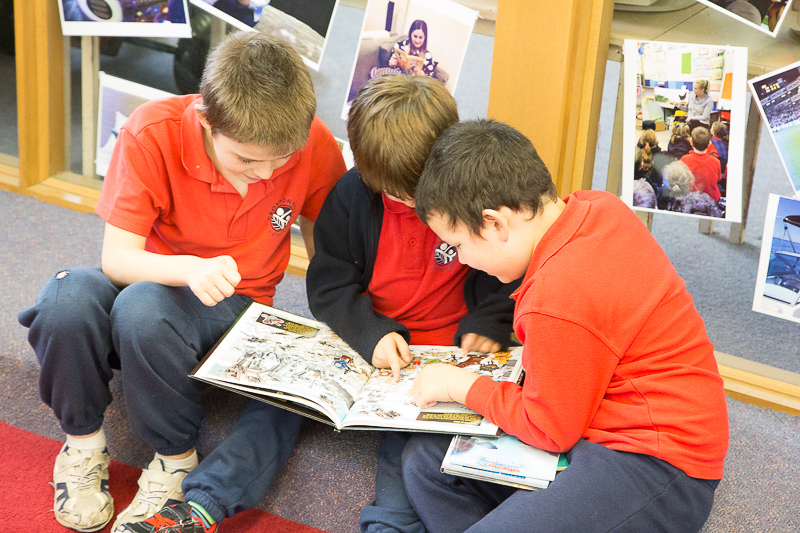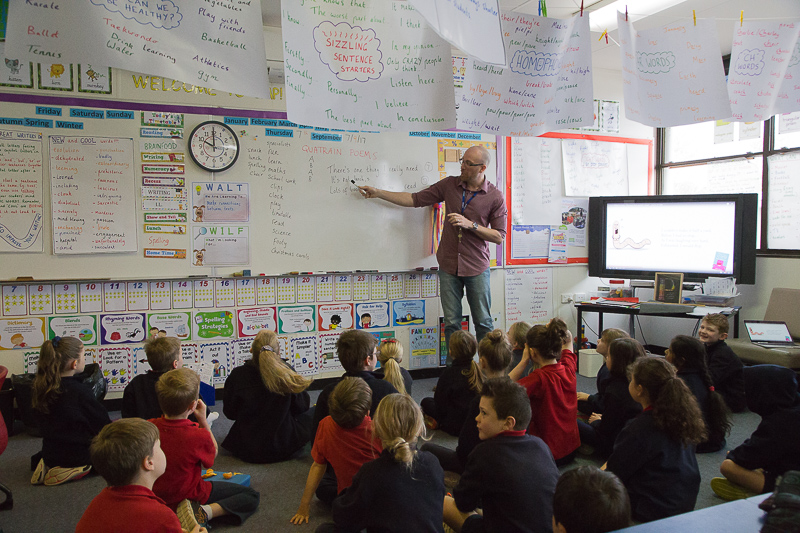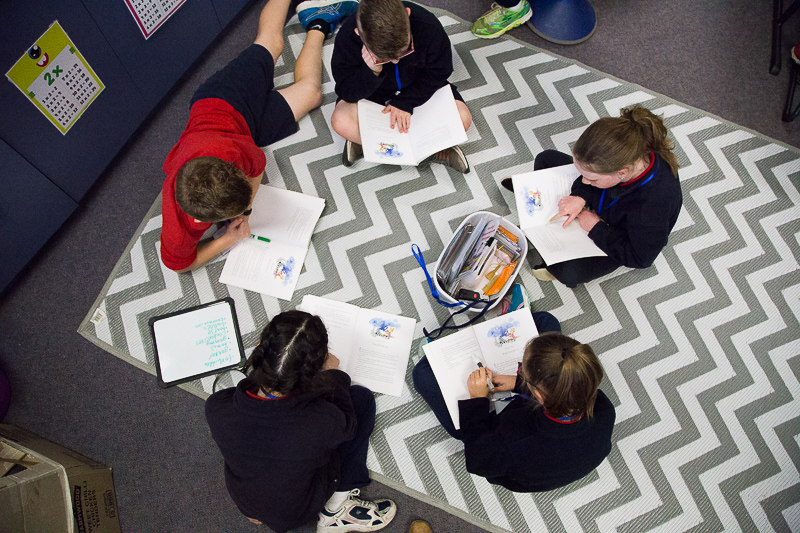Literacy
Croydon Hills Literacy Program
At Croydon Hills Primary School, we are committed to providing our students with a dynamic, evidence-based approach to literacy learning that is consistent across our school and driven by the Victorian Curriculum. Students learn to be successful readers, writers, speakers and listeners and are exposed to a range of strategies that they can draw on to progress their own learning throughout their journey with us.
At CHPS all students are engaged in Literacy for two hours each day. Our Literacy Block incorporates whole class explicit teaching, small group and individual work based on student needs. Whole class reflection and cumulative reviews of student learning is included at the end of each session.
All students are expected to read daily, both at home and at school. Home reading provides children with the opportunity to choose texts to read at home with the family. This is a wonderful and rewarding time for all! It develops a love of literature, stimulates an interest in print and helps children see reading as a leisure time activity. Read with and to your child and follow up with a discussion. When your child is ready to read to you – it is an exciting time for everyone!
Reading and Viewing:
Students are constantly challenged to further develop their reading skills, to both foster their love of reading and develop strong comprehension skills in order to become critical, deeper thinkers. Students are supported to develop skills in reading’s ultimate goal of comprehension (I understand what I read); Current evidence shows us that reading success has 6 essential pillars of: Oral Language, Phonemic awareness, Phonics, Vocabulary, Fluency and Comprehension. We are guided by The Science of Language and Reading which ensures we deliver a rigorous, explicit, cumulative and structured approach to both Reading Accuracy (Systematic Synthetic Phonics) and Language Comprehension. As a student's decoding ability and fluency increases there is an enhanced emphasis on six key comprehension strategies: using prediction and prior knowledge; thinking aloud and asking questions; visualising during reading; looking at text structure; visual representation (we don’t just read books, we read charts, graphs, tables); summarising during and after our reading.
At Croydon Hills we are lucky to have an extensive library filled with rich literature as well as well resourced classroom libraries and a specialist library teacher. We have access to a wide variety of decodable texts in P-2 as well as phonics books for older readers. These are also avaialable as take home books so students can experience success and gain multiple exposures to the exact grapheme phoneme correspondence (GPC) that they are learning in class.
Our reading lessons follow a structured literacy program and draw upon the Gradual Release of Responsibility Framework.
Writing:
Writing involves students in the active process of conceiving, planning, composing, editing and publishing a range of texts. Writing involves using appropriate language for particular purposes or occasions, both formal and informal, to express and represent ideas and experiences, and to reflect on these aspects. It involves the development of knowledge about strategies for writing. Students develop understanding and skills to use language conventions (grammar, punctuation, spelling) at an appropriate standard for their year levels. Our whole-school approach to writing has classroom teachers modelling various genres, students choosing their own writing topics, Writers’ Notebooks, student/teacher conferencing and students regularly sharing their writing with peers, for both enjoyment and to gain feedback from classmates. Students are encouraged to publish their works, which includes, but is not limited to, digital forms. Handwriting is also an important element of the writing program and is explicitly taught from Foundation to Year 4.
Our writing lesson structure follows a structured literacy program and draw upon the Gradual Release of Responsibility Framework.
Our whole school approach to spelling is consistent across the school. At Croydon Hills, we foster a progressive understanding of encoding and letter-sound relationships through following a sequential spelling program. Students are exposed to a sequence of letter-sound relationships that support them to decode and segment words into graphs, digraphs and trigraphs.
Speaking and Listening:
Speaking and Listening refers to the various formal and informal ways oral language is used to convey and receive meaning. It involves the development and demonstration of knowledge about the appropriate oral language for particular audiences and occasions, including body language and voice. It also involves the development of active-listening strategies and an understanding of the conventions of different spoken texts.
Learning Enhancement (LE)
At CHPS, our Learning Enhancement program enables us to provide high-quality evidence-based systematic small group literacy instruction and support by using data to ensure that appropriately targeted interventions are provided on an equitable and timely basis.
We use the Response to Intervention (RTI) model, a multi-tiered framework to learning instruction. In Tier 2 or 3 intervention, we can differentiate instruction and target specific skills for struggling learners. Our LE team provides:
- Tier 1 whole-class teacher instruction using evidence-based instruction using explicit high impact teaching strategies.
- Tier 2 support in small group sessions for students identified as at risk to supplement skill-building using: Mini Lit Sage and multisensory, explicit teaching of 6 foundational literacy skills including systematic synthetic phonics as identified in phonics screener.
- Tier 3 individual intensive 1:1 targeted support for our struggling learners. Using Toe by Toe or other allied health professionals.
Learning Enhancement is not a one size fits all approach, and that is where we use Individual Education Plans and assessments (internal and external) to ensure instruction is tailored to the individuals. We routinely screen students for adequate progress in these areas, using well validated, fit-for-purpose tools capable of assessing performance. We then provide more intensive, evidence-based interventions on the basis of these data for those students performing below benchmarks.
Assessments:
Formal testing includes Reading Assessments such as PAT Reading, DIBELS and SPARKLE Reading Evaluation (Decodable Readers Australia), teacher-created and moderated assessments, Essential Assessment, NAPLAN, SWST, Year 1 Phonics Screening Test, Oral Reading Fluency (ORF) and optional UNSW tests.
Informal assessment includes reading and writing assessment records, rubrics, anecdotal notes and teacher observations.
Formal, written student reports indicating student achievement in the Literacy program are provided to parents at the end of each semester.
Learning Enhancement Assessments:
Test of Phonological Awareness
Phonics Screener
Dibels
SPARKLE Reading Evaluation (Decodable Readers Australia)
York Assessment of Reading Comprehension (YARC)
Wheldall Assessment of Reading (WARL and WARN) (MULTI LIT).
© Copyright Croydon Hills Primary School












